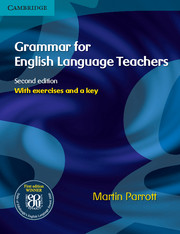Summary
Key considerations
Many learners find it easy to construct noun clauses in controlled exercises but when they speak and write may both over-use them and make mistakes in their construction.
We often leave out the conjunction that at the beginning of noun clauses or pronounce it so weakly that learners don’t hear it. Some learners may fail to understand the structure and meaning of sentences when this has been left out or ‘swallowed’. They may welcome a lot of help and guidance in spotting where it is implied in real conversation and text.
What are noun clauses?
What do they do?
These clauses are known as noun clauses because they can often take the place of nouns (or noun phrases) in a sentence.
I don’t know the time.
I don’t know when he’s coming.
In some grammars noun clauses are considered as types of direct object. Like direct objects, they often contain the most important information in the sentence.
In some grammars, infinitive and -ing forms which follow transitive verbs are considered as noun clauses. In this book they are dealt with separately (in Chapter 12).
One common use of noun clauses is in reporting what someone has said or written.
What do they look like?
Noun clauses are subordinate clauses which generally follow the main clause and are linked to it by one of the following (kinds of) conjunctions:
Question words: I don’t know when he’s coming.
if or whether: I don’t know whether I want to go out.
that.: I don’t know that he’s here yet.
Types of noun clause
Noun clauses derived from questions
These clauses contain an implicit question and the conjunction we use is either a question word (where, what, when, etc.) or if or whether.
Question words: I have no idea where I put it.
if: Do you remember if you left it anywhere.
whether: They wonder whether you need help.
Sentences containing these clauses are sometimes classed as indirect questions.
That clauses
The term ‘that clause’ is potentially misleading because we can leave out the conjunction that and we often do:
I’m sure (that) I had it earlier.
- Type
- Chapter
- Information
- Grammar for English Language Teachers , pp. 398 - 405Publisher: Cambridge University PressPrint publication year: 2010



